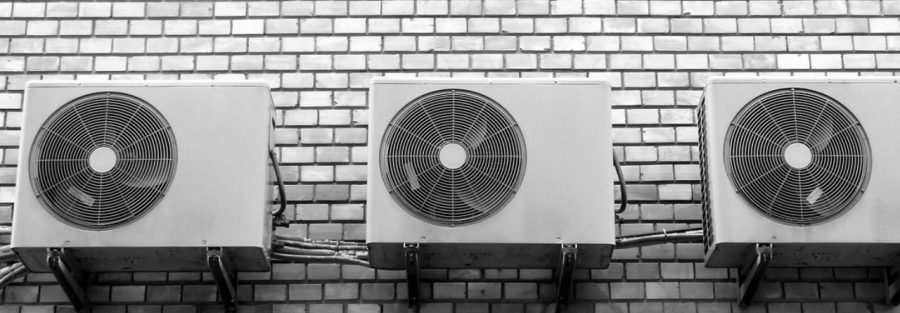A loud AC unit can be more than just a nuisance. It can disrupt your peace and quiet at home.
Many homeowners wonder, “Why is my AC so loud inside?” or “Why is my new AC so loud inside my house?”
Understanding the reasons behind this noise is crucial. It helps in identifying whether it’s a normal sound or a sign of a problem.
From loose parts to installation issues, several factors can contribute to a noisy air conditioner.
This article will guide you through common causes and solutions, ensuring a quieter, more comfortable living space.
Understanding Normal vs. Problematic AC Noise
Not all AC noise indicates a problem. Understanding normal vs. problematic sounds is key.
Every air conditioner makes some noise while running. Gentle humming or quiet whooshing is usually normal.
However, sudden loud noises can signal an issue. These should not be ignored. Here are some common sounds and what they might mean:
- Humming: Generally normal, possibly a small issue if it gets louder.
- Rattling: Could be loose parts or debris.
- Squealing: Often a worn-out fan belt.
Recognizing these differences can prevent minor issues from becoming major problems.
Common Causes of a Loud AC Unit
A loud AC unit can have many causes. Understanding these helps in tackling the noise effectively.
One common reason for noise is loose parts. Over time, screws and bolts can loosen, leading to rattling sounds.
Debris inside the unit is another culprit. Leaves or twigs can create noise and disrupt airflow.
A malfunctioning fan can also cause a loud AC. Damaged fan blades might make screeching or grinding sounds.
Additionally, ductwork issues like leaks or blockages can amplify noise levels. These require attention to ensure smooth function.
Here are some frequent causes summarized:
- Loose screws or bolts: Often lead to rattling noises.
- Debris inside the unit: Causes disturbances and noise.
- Malfunctioning fan: May result in screeching or grinding.
- Ductwork issues: Can lead to increased noise levels.
Tackling these common causes early can prevent further damage. Regular maintenance is key to keeping your AC running quietly.
Why Is My New AC So Loud Inside My House?
Purchasing a new AC should mean a quieter experience. If it’s louder than expected, there might be underlying issues.
Improper installation often leads to excessive noise. A poorly installed unit can vibrate more, causing noise disturbances.
Additionally, manufacturing defects could be the reason. Sometimes components aren’t secured right from the factory.
Here are potential reasons for your new unit’s noise:
- Improper installation: Causes vibrations and noise.
- Manufacturing defects: Components may not be properly secured.
- Incorrect system size: An oversized unit can be noisier than expected.
Understanding these issues is crucial. Address them early to avoid long-term noise problems.
Types of Air Conditioner Noises and What They Mean
Different noises from an AC unit can indicate various issues. Each sound has its own story to tell. Understanding them helps in diagnosing problems.
A rattling noise is often a sign of loose parts. This could be as simple as screws or bolts needing tightening.
Buzzing sounds might point to electrical issues. Wiring problems or a failing motor can produce this unnerving sound.
Screeching noises are another common concern. They typically suggest that a fan motor or compressor needs lubrication.
Here is a quick guide to common AC noises and their meanings:
- Rattling: Loose parts, potentially an easy fix.
- Buzzing: Electrical issues, possibly with wiring.
- Screeching: Lack of lubrication in motor parts.
Clicking sounds are usually from electrical control malfunctions. A constant clicking can mean the relay might be failing.
Finally, banging noises often mean serious issues. It’s best to switch off the unit and call a professional.
How AC Location and Installation Affect Noise Levels
The location of your AC unit plays a big role in noise levels. An AC placed near windows or walls tends to amplify sound. This can create a more audible environment inside the home.
Proper installation is also crucial. A poorly installed unit might vibrate more than it should. Vibration can lead to increased noise, disturbing your peace.
Consider these factors when assessing noise:
- Proximity to windows or walls
- Stability of the installation
- Quality of the installation process
Ensuring the unit is on a stable, level surface is key. This can minimize unnecessary vibrations. Keeping noise at a bearable level is important for home comfort.
DIY Troubleshooting for a Loud AC Unit
Experiencing a loud AC unit can be frustrating, but there are steps you can take yourself. Start by checking for loose screws or bolts. Fastening these can often make a noticeable difference.
Inspect the area around the AC unit. Debris like leaves or twigs can get caught in the unit and cause noise. Clearing any debris can help quiet the unit.
Additionally, examine the fan blades. They may be bent or damaged. Adjusting or replacing them can reduce noise significantly.
Try these simple steps:
- Tighten screws and bolts
- Remove debris near the unit
- Check and fix fan blades
If these steps don’t help, further investigation may be needed. For persistent or unusual noises, professional help might be the best route. Identifying the source early can prevent larger issues down the road.
When to Call an HVAC Professional
Sometimes, DIY fixes aren’t enough. If your AC still makes noise after your attempts, it may require professional attention. Experts can diagnose complicated issues that aren’t easily visible.
Considering a professional is wise when:
- The noise persists despite DIY checks
- You hear clanging or banging sounds
- There’s reduced cooling efficiency
Timely intervention can prevent costly repairs or replacements later. HVAC professionals bring specialized tools and knowledge that can effectively resolve complex problems.
Solutions to Reduce Air Conditioner Noise
Reducing AC noise can significantly improve home comfort. You can explore several practical solutions to achieve a quieter environment. Implementing these changes might yield immediate results.
First, consider installing soundproofing materials. A sound blanket around the unit can dampen excessive noise. Ensure the unit is on a stable, level surface to reduce vibrations.
Additionally, regular maintenance can keep components secure and functioning smoothly. Addressing these small issues can prevent bigger problems later.
- Install sound blankets for noise reduction
- Ensure the unit is level and stable
- Conduct regular maintenance and inspections
Lastly, relocating the unit, if feasible, can also help. Moving it away from windows or shared walls reduces sound that disrupts daily life.
Preventing Future AC Noise Issues
Preventive measures can save time and money. Regular check-ups keep your AC in great shape. They reduce the risk of loud noises.
Scheduling seasonal maintenance is crucial. Technicians can spot potential problems early. Addressing small issues prevents them from growing.
- Schedule regular professional inspections
- Keep the unit clean and free of debris
- Ensure proper installation and positioning
Final Thoughts: Enjoying a Quieter, More Comfortable Home
Managing AC noise enhances your living environment. With a quieter system, comfort improves significantly. Addressing noise issues ensures peace at home.
By understanding your AC’s noise and addressing issues promptly, you enhance comfort. Sound solutions lead to a serene and pleasant atmosphere, allowing you to enjoy your space fully.



